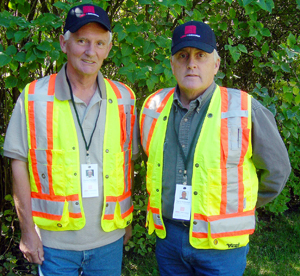
BC Hydro has announced an improved online survey now available at www.arrow-kinbasket-recreation-survey.ca as part of its studies to understand water and shore-based recreational use of Arrow Lakes Reservoir and boat ramp use of Kinbasket Reservoir.
The online survey asks questions about reservoir recreation including boat ramp use, frequency of recreational activity, location, infrastructure requirements, user demographics, and level of familiarity with Arrow and Kinbasket Lakes reservoirs.
“BC Hydro wants to better understand current recreational use of Arrow Lakes Reservoir and use of Kinbasket Reservoir boat ramps as recommended by the Columbia River Water Use Plan,” Alan Chan-McLeod, Hydro’s Columbia River Water Use Plan Physical Works Lead, said in a statement Thursday. “This information will help guide future decision-making on recreational improvements.”
The studies are being delivered by LEES and Associates. Data on recreational use is being collected at established recreation sites on Arrow Lakes Reservoir through traffic counters, face-to-face surveys with reservoir users, and online surveys. Kinbasket boat ramp use data is being collected through face-to-face surveys, online surveys and traffic counters installed at existing boat ramps.
“Last year, traffic counters installed at established boat launch locations recorded close to 24,000 boat launches at Arrow Lakes Reservoir ramps between October 1, 2009 and September 30, 2010,” said Erik Lees from LEES and Associates, “and a total of 1,354 boat launches were recorded at Kinbasket Reservoir ramps between April 9, 2010 and Sep 30, 2010.
Study staff will be at randomly selected Arrow Lakes and Kinbasket reservoir access points from spring to fall this year to continue face-to-face surveys with reservoir users. To date a total of 641 face-to-face surveys have been completed as well as 39 responses to the pilot online survey that operated last year.
The Columbia River Water Use Plan, now in its fifth year of implementation, recommends a large number of monitoring programs and projects over 12 years to provide benefits to a variety of non-power interests along the Columbia River mainstem including recreation, fish and fish habitat, wildlife, vegetation, and heritage. The plan calls for debris management, boat ramp improvements, and recreation demand studies on Arrow Lakes and Kinbasket reservoirs to benefit boat recreation.



